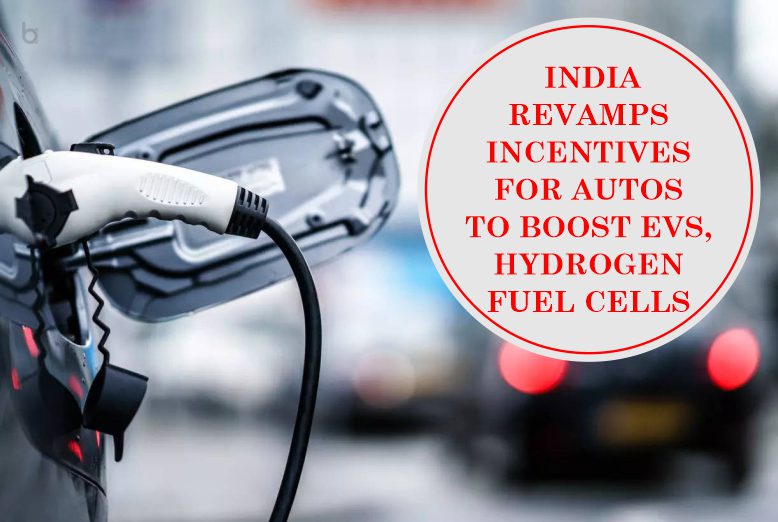Key Highlights:
- India plans to shift to clean technology as Tesla Inc. (TSLA.O) prepares to join India.
- The government is concentrating on embracing clean mobility in order to reduce its reliance on oil and minimize pollution.
- India’s largest automaker, Maruti Suzuki (MRTI.NS), has no plans to offer electric vehicles in the near future.
$8 billion auto-industry program

The projected $8 billion auto-industry initiative in India has been revised to focus on encouraging firms to produce electric and hydrogen-powered vehicles.
This is a significant shift from the government’s initial approach, which was to incentivize car and auto part makers to produce gasoline cars and their components for local and international sale, with some extra benefits for EVs.
The shift to clean technology comes as Tesla Inc. (TSLA.O) prepares to join India and fight for lower electric car import tariffs. While the government considers the proposal, it is seeking some financial incentive which might include a pledge from Tesla to produce cars locally.
According to sources, India’s new plan would only provide incentives to manufacturers who produce electric vehicles and hydrogen fuel cell vehicles. “The government does not want to spend money on promoting old technologies,” one of the sources said.
Auto parts manufacturers will be rewarded for producing clean vehicle components as well as investing in safety-related parts and other sophisticated technology. These include linked car sensors and radars, automatic transmission, cruise control, and other electronics.
India to embrace clean mobility

According to sources, the original $8 billion incentive package might be reduced which would apply to both domestic and foreign sales. A request for a response from India’s industries and finance ministries was not immediately returned.
Lack of investment and poor demand has hampered India’s efforts to encourage electric vehicles, which account for a small percentage of overall car sales.
However, the government is concentrating on embracing clean mobility in order to reduce its reliance on oil and minimize pollution. The government plans to do this while simultaneously satisfying its obligations under the Paris Climate Accord.
Tata Motors announces EV ambitions

Tata Motors (TAMO.NS) is presently India’s leading seller of electric vehicles, with competitor Mahindra & Mahindra (MAHM.NS) and motorcycle manufacturers TVS Motor (TVSM.NS) and Hero MotoCorp (HROM.NS) also announcing EV ambitions.
However, India’s largest automaker, Maruti Suzuki (MRTI.NS), has no plans to offer electric vehicles in the near future as it does not anticipate enough demand or affordability for customers. The incentive program is part of India’s larger $27 billion plan to recruit international businesses and improve domestic output and exports.






















